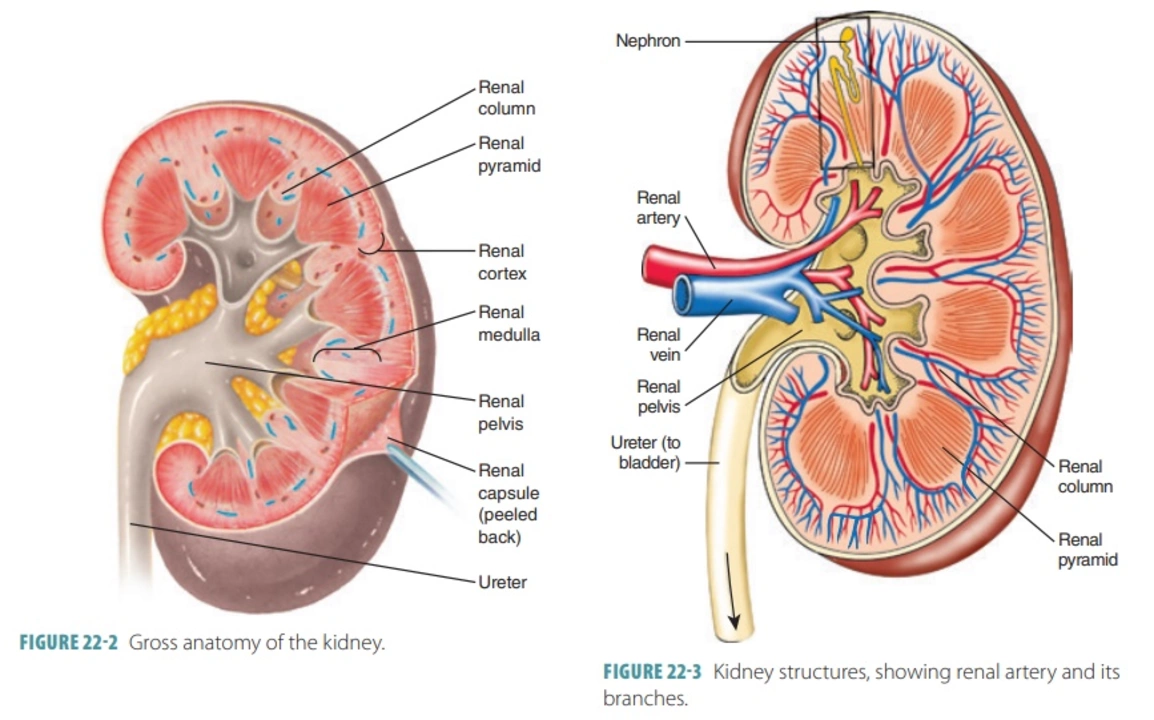Kidney Function: How They Work and Simple Ways to Protect Them
Your kidneys are tiny power plants that clean blood, balance fluids, and control electrolytes. Each day they filter about 120‑150 quarts of blood, turning waste into urine while keeping essential nutrients where you need them.
What Kidney Function Really Means
When doctors talk about kidney function they usually refer to the glomerular filtration rate (GFR). GFR measures how much blood passes through the tiny filters called glomeruli each minute. A normal adult GFR sits around 90‑120 ml/min/1.73 m²; lower numbers signal reduced filtering ability.
Kidney function isn’t a single event—it’s a blend of filtration, reabsorption, and hormone production. The kidneys release erythropoietin to stimulate red blood cells and renin to regulate blood pressure. Anything that hurts one part can ripple through the whole system.
Everyday Habits That Support Your Kidneys
Staying hydrated is the easiest kidney booster. Water dilutes waste, helps maintain GFR, and prevents crystals from forming in the urinary tract. Aim for about 2‑3 liters a day unless your doctor says otherwise.
Watch your salt intake. Too much sodium makes the kidneys work harder to excrete excess fluid, raising blood pressure and eventually harming glomeruli. Choose fresh foods over processed snacks, and flavor meals with herbs instead of table salt.
Protein is essential but excessive amounts can overload the kidneys. Stick to recommended portions—about 0.8 g per kilogram of body weight for most adults—and vary sources between plant‑based beans, fish, and lean meat.
Avoid over‑the‑counter painkillers like ibuprofen or naproxen on a regular basis. These drugs narrow blood flow to the kidneys and can cause chronic damage if used frequently. If you need relief, talk to your doctor about safer options.
Regular check‑ups catch trouble early. A simple blood test for creatinine, combined with age and gender factors, gives an estimated GFR. Spotting a drop before symptoms appear lets you adjust diet, medication, or lifestyle in time.
If you have diabetes or high blood pressure, keep them under control. Both conditions are the leading causes of kidney disease because they strain the glomerular network. Monitoring glucose and blood pressure daily makes a huge difference.
Exercise isn’t just for heart health; it also improves circulation to the kidneys. Even brisk walking 30 minutes a day boosts blood flow, helps manage weight, and reduces hypertension—all good news for renal function.
Limit sugary drinks and alcohol. Sugar raises insulin levels, which can hurt kidney vessels over years. Alcohol dehydrates you and forces the kidneys to work harder to eliminate toxins.
Lastly, keep an eye on any changes in urination—frequency, color, or pain could signal a problem. Early signs like foamy urine or swelling in ankles often point to reduced filtration, so don’t ignore them.
By drinking enough water, watching salt and protein, staying active, and managing chronic conditions, you give your kidneys the best chance to stay strong. Small daily choices add up to big protection for these vital organs.
Azathioprine and Kidney Function: What You Should Know
As someone who's always keen on learning about health and medications, I recently came across some vital information on Azathioprine and its impact on kidney function. Azathioprine is an immunosuppressive drug, mainly used to prevent organ rejection after transplantation and to treat autoimmune diseases. While it can be effective for these conditions, it's important to be aware that long-term use may lead to kidney damage, especially in high doses. Regular monitoring of kidney function is essential for those on this medication to ensure they remain healthy. It's always best to discuss any concerns with your healthcare provider to make informed decisions about your treatment options.
